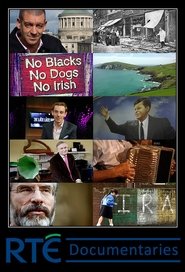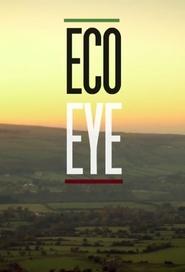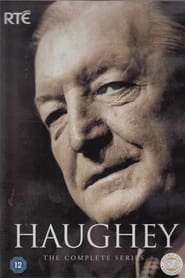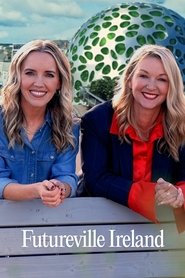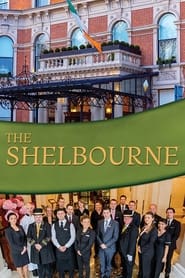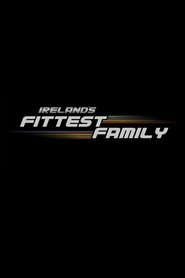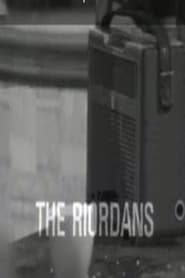Rt Eacute One TV Series - Page 8
-
RTÉ Documentaries
1970
RTÉ Documentaries
1970
Documentaries that were produced for or aired on the RTÉ television stations in the Republic of Ireland. -
Hospital Live
2022
Hospital Live
2022
going behind the headlines to meet the patients, health workers and innovators at the cutting edge of Irish medical science. -
Eco Eye
0000
star 8Eco Eye is an Irish television series broadcast on RTÉ One. It is presented by Duncan Stewart and focuses on environmental issues. Stewart's daughter Tania also features on the show; she reports from across Ireland, asking people their views on Ireland's environmental future. Eco Eye airs every Wednesday at 19:30, with the 2009 series being the sixth of its kind overall. The 2009 series also entered Northern Ireland for the very first time when it examined important cross border issues such as shared waters, transboundary waste problems and tourism in Northern Ireland. The series is available to watch online at RTÉ.ie. -
Haughey
2005
Haughey
2005
The story of the Irish politician Charles Haughey, told by his family as well as those who worked most closely with him in politics and in the private business circles from which his most controversial payments were drawn. -
Growing Up Gay
0000
star 1Growing Up Gay was a groundbreaking two-part documentary series broadcast on RTÉ One, which began on Monday 19 April 2010 at 9.35pm. It explored the experiences of the first generation of lesbian, gay, bisexual and transgender people growing up in an Ireland where it was legal to be themselves. Filmed over 18 months, it was made by Crossing the Line Films with the ongoing support and advice of Ireland's national organisation for Lesbian, Gay, Biseuxal and Trans young people, BeLonG To. It featured LGBT school-goers, Muslims, and young people facing persecution in their hometowns across Ireland. RTÉ courted controversy by recommending that the documentary be suitable for viewing by "mature audiences" only, despite its stars all being teenagers. There was also a delay in the appearance of the second episode on RTÉ player. Growing Up Gay was nominated for "Event of the Year" at the GALAs. -
Blood of the Irish
0000
Blood of the Irish
0000
Blood of the Irish is a two-part documentary miniseries broadcast on RTÉ One and presented by the professional gardener Diarmuid Gavin. It commenced airing on 5 January 2009 and completed broadcasting seven days later. In the documentary, Gavin sought 'the truth' about Irish genealogy. Genetic research into a selection of Irish DNA and its origins was undertaken for the programme at Trinity College, Dublin and EthnoAncestry. They revealed some previously unheard ideas. An attempt was also made to extract ancient DNA from some of the oldest human remains that have to date been located within the boundaries of Ireland. -
My Bungalow Bliss
2021
My Bungalow Bliss
2021
Hugh Wallace sees four innovative architects, paired with four first time bungalow homeowners, who are desperately seeking a home makeover. -
Hostage
0000
Hostage
0000
Hostage is a six-part Irish history documentary television series broadcast on RTÉ One in June 2008 each Friday at 20:30. The series spans a period from the 1970s to the 1990s and features footage from the RTÉ Archive Production Unit of bank raids and political kidnaps in remote locations such as Beirut and Clonmel. Amongst the more widely publicised cases featured on the show is the story of Mary Coen, a Galway nurse who was kidnapped by a liberation movement in Western Ethiopia in 1988. She was one of two Irish nurses who were working with the Irish charity Concern Worldwide. They had travelled to remote Western Ethiopia the year before Mary Coen's kidnap to work on a Concern project in the African country. The series is produced by the RTÉ Archive Unit. -
The Meaning of Life
0000
star 7The Meaning of Life is an Irish television programme, the first series of which was broadcast on RTÉ One in 2009. It is presented by the veteran broadcaster Gay Byrne. Each episode involves Byrne interviewing a well-known public figure. The series is broadcast each Sunday night at 22:20. In 2010 The Meaning of Life returned for both a second and, later, a third series. Interviews with former Taoiseach Bertie Ahern and actors Gabriel Byrne and Brenda Fricker during the second series attracted media attention when they spoke of their religious habits and child sexual abuse respectively. Gay Byrne appeared on The Late Late Show on 18 December 2009 to discuss the programme. A fourth series soon followed. Then a fifth series from January 2012. And a sixth in October 2012. And a seventh in January 2013. -
Colm and Jim-Jim's Home Run
0000
star 9Colm and Jim-Jim's Home Run was an Irish game show broadcast on RTÉ One each Sunday at 18:30. It was presented by, respectively, Colm Hayes and Jim-Jim Nugent, the duo's first foray into the world of television. It was first broadcast on 16 November 2008. It was a creation of Vision Independent Productions, responsible for the popular television shows Showhouse and The Restaurant. Contestants could win €25,000 without answering a single question. To promote the show the presenters appeared on chat show Tubridy Tonight the night before the first episode was broadcast. The programme received mostly negative reviews from critics. However the format of the show was purchased by Fremantle Media, and is now available for international distribution, with interest from the UK and US, with Colm and Jim-Jim receiving interest to host a UK version The show was axed due to RTÉ cutbacks in June 2009. -
Martin's Mad About Fish
2010
Martin Shanahan shows that anyone can cook simple tasty seafood at home. -
Tolka Row
0000
Tolka Row
0000
Tolka Row is an Irish soap opera set in a fictional housing estate on the northside of Dublin. Based on Maura Laverty's play of the same name, Tolka Row was first broadcast on 3 January 1964 and aired weekly for five series until it ended on 31 May 1968. As Telefís Éireann's first venture into soap operas, Tolka Row quickly became a staple of the new television station's schedule and set the pace for all future home-produced serials. Its popularity also resulted in the station developing a second soap opera, The Riordans, in 1965. Tolka Row is similar in format to the long-running British soap Coronation Street, from which it borrows its main premise. The show was centred around the Nolans, a typical working-class Dublin family, and their neighbours, the Feeneys. All episodes were filmed in studio at Telefís Éireann's Television Centre in Donnybrook, Dublin. -
Futureville Ireland
2024
Futureville Ireland
2024
An ambitious new 3-part series that offers a vision of a new Irish City for 2050. Presented by Carla O’Brien and Dr. Lorraine Mancey. -
Fame and Fortune
0000
Fame and Fortune
0000
Fame & Fortune is an Irish game show broadcast on RTÉ One on Saturday nights from 1996 to 2006. Hosted by popular Irish television and radio personality Marty Whelan, the show aired during the summer months of June, July, and August as a seasonal replacement for Winning Streak. It was preceded by Millionaire, also hosted by Whelan, and succeeded by The Trump Card in 2007, hosted by Laura Woods. Fame & Fortune had its production costs funded by RTÉ and its prize money funded by Ireland's National Lottery. Entry to the show was based on National Lottery scratchcards, and contestants could win cash, cars, holidays, and other prizes. Fame & Fortune had its final season in the summer of 2006. Its 2007 replacement, The Trump Card, was itself replaced a year later by The Big Money Game. -
The Shelbourne
2014
The Shelbourne
2014
Follow the staff of Dublin's Shelbourne Hotel as they uphold exacting 5-star standards of service during the hotel's busiest season. -
Meet Your Neighbours
0000
Meet Your Neighbours
0000
Meet Your Neighbours is an Irish character-based comedy sketch show which was first broadcast on RTÉ Television in 2011. It was written by and starred the comedian P. J. Gallagher. -
Kenny Live
0000
Kenny Live
0000
Kenny Live is an Irish weekly chat show on RTÉ that was hosted by Pat Kenny. The show debuted in 1988 and aired every Saturday night, except during the summer months, directly after the main evening news. In 1999 Kenny Live came to an end when Kenny succeeded Gay Byrne as host of The Late Late Show. -
Ireland's Fittest Family
0000
Laura Fox is on the hunt to find the nation’s Fittest Family alongside coaches Sonia O’Sullivan, Anna Geary, Davy Fitzgerald and Donncha O’Callaghan. -
The Riordans
0000
star 7The Riordans was the second Irish soap opera made by Raidio Telefís Éireann. It ran from 1965 to 1979 and was set in the fictional townland of Leestown in County Kilkenny. Its use of Outside Broadcast Units and its filming of its episodes on location rather than in studio, broke the mould of broadcasting in the soap opera genre, and inspired the creation of its British equivalent, Emmerdale Farm by Yorkshire Television in 1972. -
Premier Soccer Saturday
0000
Premier Soccer Saturday was formally the principal weekly club association football programme on RTÉ. In June 2013 RTÉ Sport confirmed that due to cost cutting initiative's to save the station up to €1.3m a year, it will no longer have the Irish rights to television coverage of the Premier League, with the 2012-13 Premier League season being the final season shown on RTÉ Sport. It was broadcast on RTÉ Two every Saturday evening between 19:30 and 21:00 and occasionally on Sunday during the English league soccer season, showing highlights of Premier League football matches. When the show was aired on a day other than Saturday, it used the appropriately customised title. The programme only showed English association football, as Monday Night Soccer covers Irish association football. The most recent theme tune for the show was a cover of the Republica song, "Bloke".
